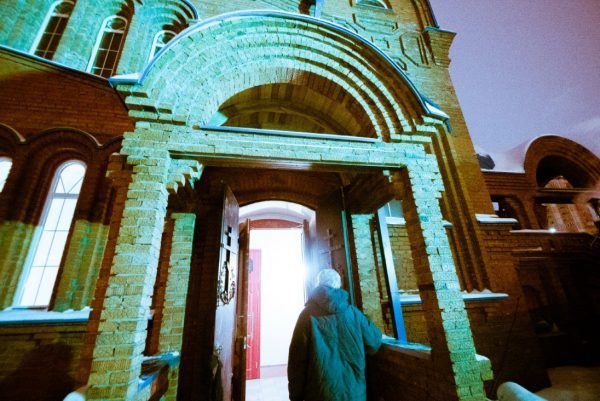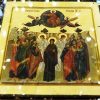What does the parish church offer its members in addition to the Divine Liturgy on Sunday and the other sacramental services like baptism, marriage, and funerals and some charitable assistance? Can the priest not add to this serving, spiritually guiding, and healing souls?
Can the doors of the church not be opened more than once a week for the Divine Sacrifice or for vespers, a paraklisis or other prayers? The Divine Liturgy can be held in the evening during the week, but what is more beautiful and more effective than a Divine Liturgy early in the morning before going to school or work? Because spiritual struggle in personal or liturgical prayer is effective and fruitful in the morning when the mind is fresh and we offer the firstfruits of our thought and prayer to God. In the Antiochian Church, we not long ago had the tradition in every diocese of celebrating the Divine Liturgy early every day in a church specially designated for this. This is because the Church’s experience tells us that prayer, especially early in the morning, and closeness with the Lord are priorities in the life of the believer and are reflected positively in the family, at school, at work and in society. The Church is the hospital for sick souls, says Saint John Chrysostom. This is because illness is rooted in our mind (nous).
The holy fathers teach us that man cannot be radically healed except through the grace of the Holy Spirit, naturally by way of repentance (metanoia), whose literal meaning is a change of mind (nous), so that it may be attached to the mind of Christ, as the Apostle Paul calls for in his Epistle to the Philippians (cf. Philippians 2:5).
Beloved, the Orthodox Christian witness does not only rely on the intellect, since it also and especially assumes the purification of the heart through confession and repentance. Saint Seraphim of Sarov says, “Acquire the Spirit of peace in your heart and thousands around you will be saved.”
Let us not forget, brethren, that we believers are called to bear witness to Christ in our society, which today is diverse in its denominations and religious communities on the one hand, and in its materialist and worldly inclination on the other hand. The Lord Jesus Himself calls us, through His disciples before His ascension from us to heaven in the body, saying, “Go and make disciples of all nations… teach them to keep all that I have commanded you” (Matthew 28:19-20).
He is the one who went about teaching, “preaching the gospel of the kingdom, and healing every sickness and every disease among the people” (Matthew 9:35).
Arabic original here.

















